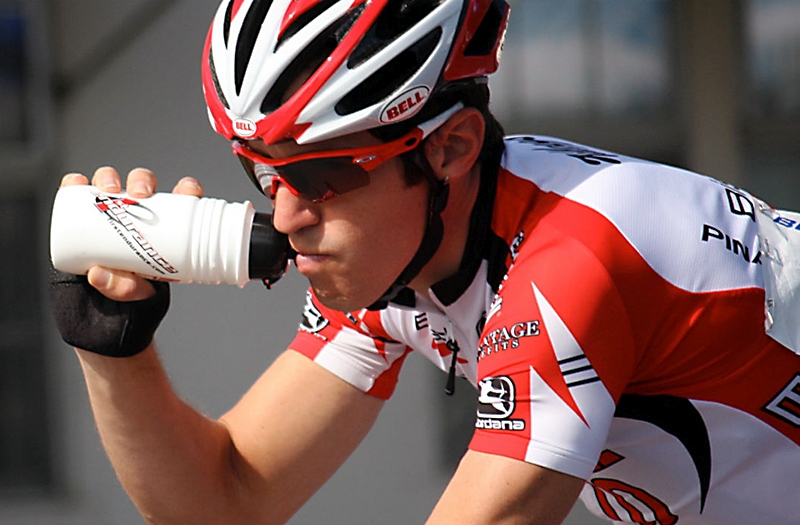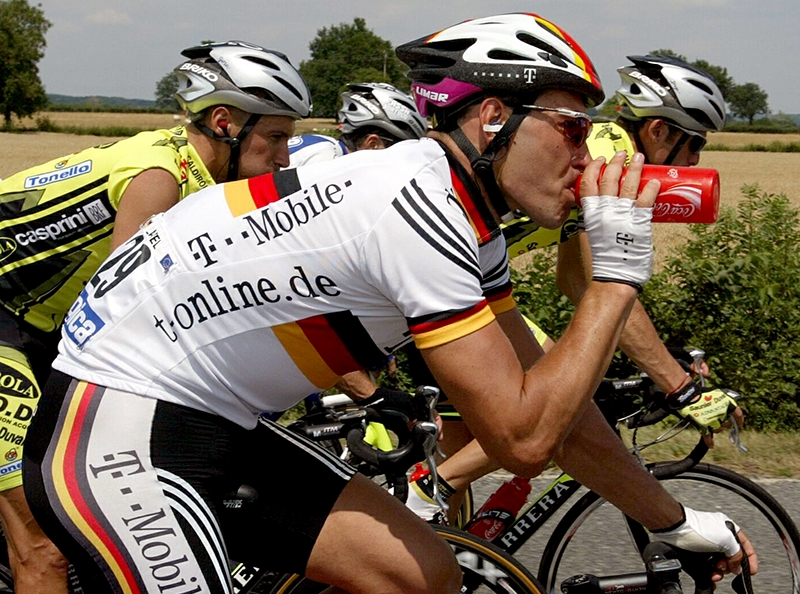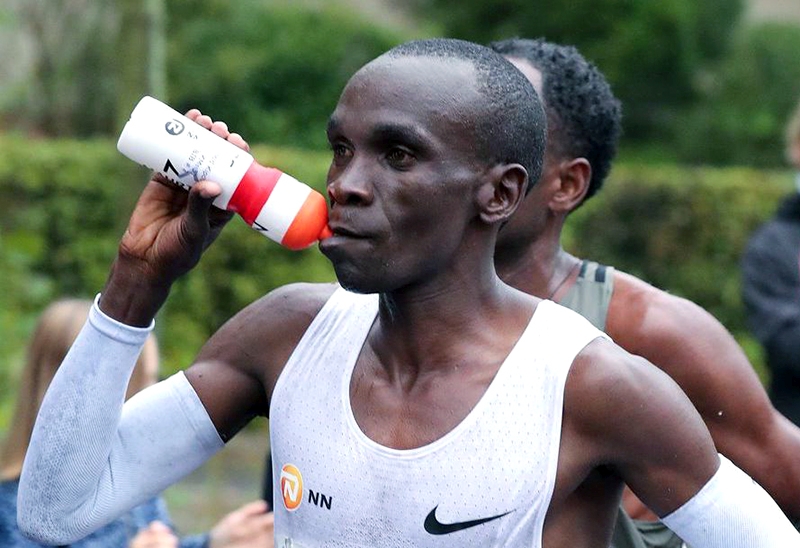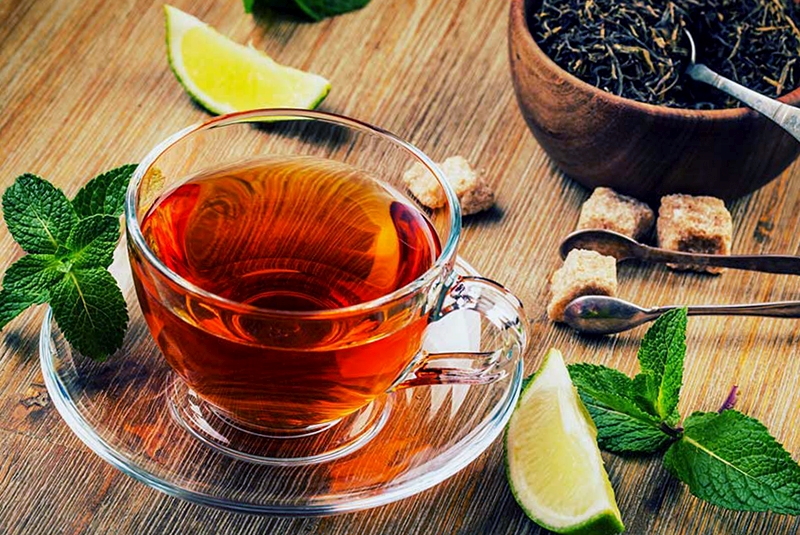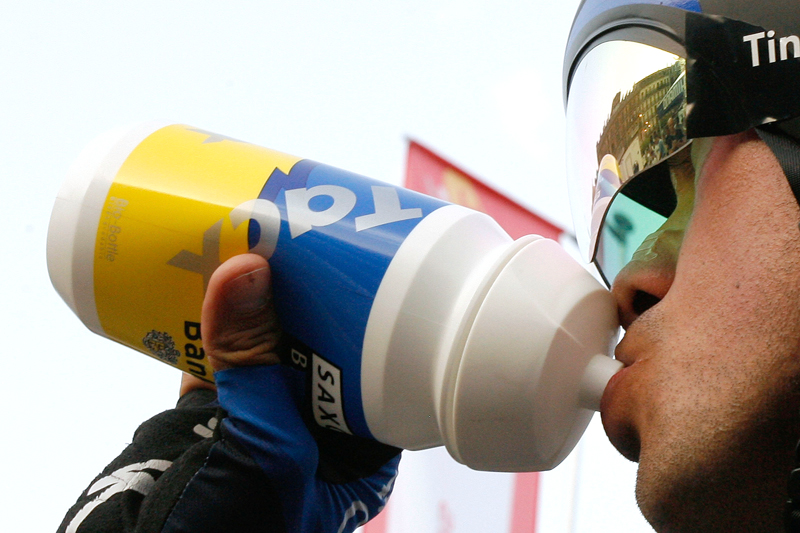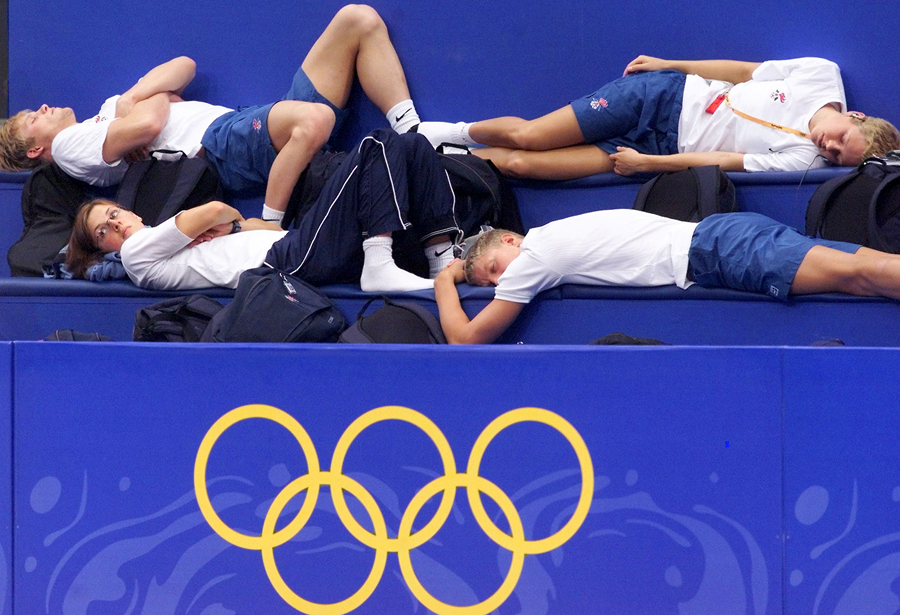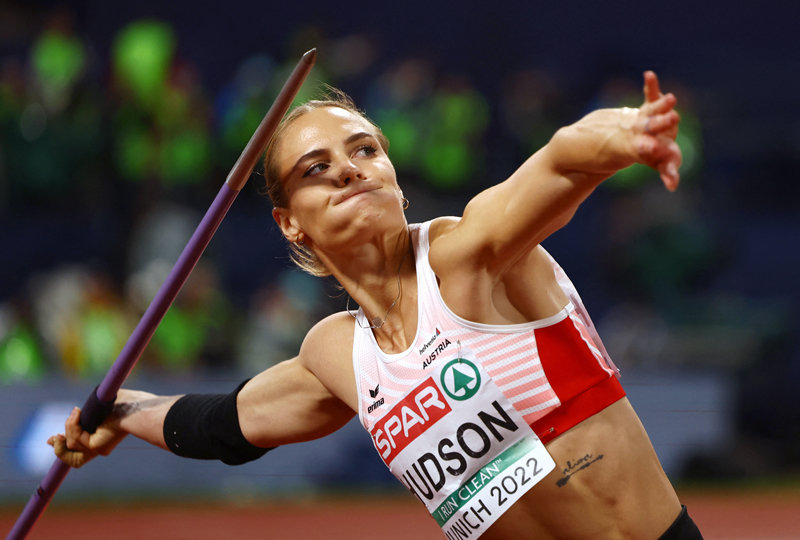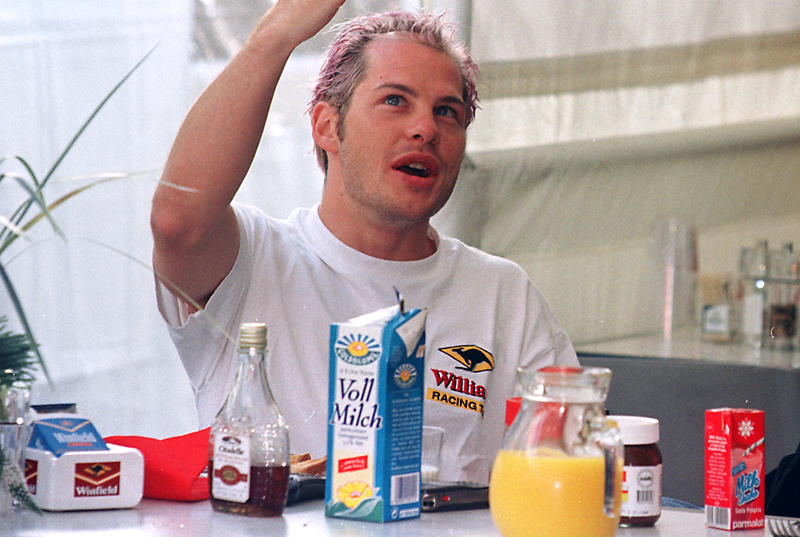You are viewing 1 of your 1 free articles. For unlimited access take a risk-free trial
Fuelling on the move: banana power and no monkeying!
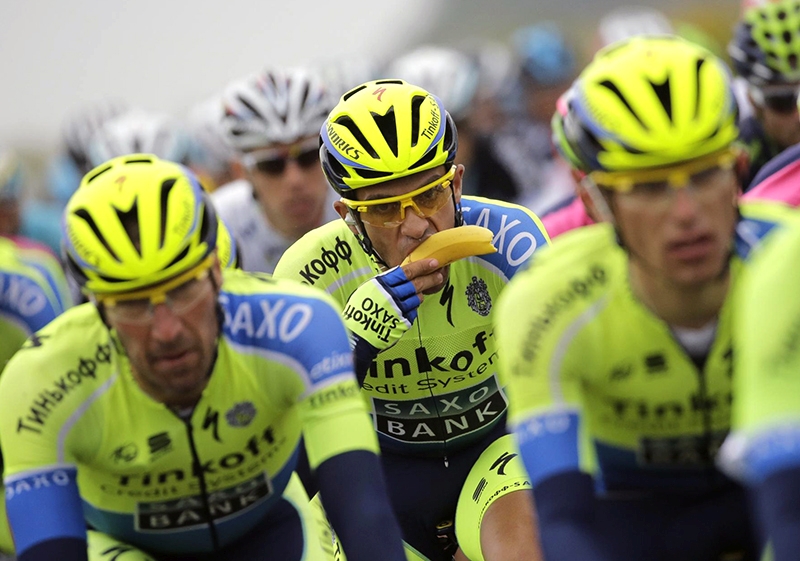
Can natural foods such as bananas ever be as effective as sports drinks and gels when refuelling on the move? Andrew Hamilton looks at some surprising research
Once upon a time, bananas were a considered the ‘go-to’ food for cyclists undertaking long training session or races. That’s not surprising really; not only are they an excellent source of low-fat muscle-fuelling carbohydrate, they’re easy on the tummy, easy to stash in the rear pockets, and also come packaged in their own biodegradable container!Over the past two decades however, an increasing understanding of exercise biochemistry and the nutritional requirements of the exercising body has led to a revolution in sports nutrition. When it comes to fuelling on the move, it’s high-tech drink and gel formulations that are now the number one choice – not just for cyclists, but runners, swimmers and triathletes too. Athletes who prefer more natural foods for refuelling might therefore assume that they face a major disadvantage. But the good news is that this might not necessarily be the case.
Bananas vs. carbohydrate drink
In a well-designed study conducted at Appalachian State University in the US, researchers looked to see what performance advantage could be gained by using carbohydrate drinks to refuel during a long bike instead of consuming bananas(1). In the study, fourteen trained cyclists completed two 75-kilometer cycling time trials during which they ingested either bananas or carbohydrate drink. Importantly, the serving sizes of the drinks/bananas were given to the cyclists were adjusted to ensure that whatever the cyclists were consuming, the rate of carbohydrate consumed was the same – 0.2g of carbohydrate per kilo of bodyweight every 15 minutes.At a later date, the trials were repeated but the groups reversed – ie those who had consumed bananas took carbohydrate drink and vice-versa (a so-called ‘crossover’ trial – considered more reliable than single trials). The time trial performance of the cyclists was measured and before, during and one hour after both of the time trials, blood samples were taken and analysed to see how the blood sugar levels varied with each type of carbohydrate consumed. There were also blood samples taken to monitor levels of markers of immunity and metabolic stress experienced by the cyclists during and after their time trials (ingesting carbohydrate during exercise is known to help prevent exercise-induced dip in immunity and combat oxidative stress).
What they found
When all the data was collected and analysed, the researchers found that the time trial performance of the cyclists was actually the same, regardless of whether they had consumed bananas or carbohydrate drink. Moreover, the cyclists’ blood sugar levels also followed the same pattern regardless of the type of carbohydrate consumed, indicating that the metabolic response to consuming bananas was very similar to consuming carbohydrate sports drinks. And when markers of oxidative stress and immunity were compared, it was clear that the bananas fared just as well as the carbohydrate drink in helping to reduce oxidative stress and maintaining immune function.Practical implications for cyclists (and other athletes)
Does this study mean we can all ditch our carbohydrate drinks and revert back to bananas and plain water? Not necessarily; a well-formulated carbohydrate drink supplies an almost perfect balance of water, carbohydrate and electrolyte minerals - important to replace the minerals lost during sweating. There’s also the issue of bulk; if you rely on bananas for fuel, you will also need to carry water (or collect it en route). Bananas plus water are always going to weigh more than just carbohydrate drink, which is not ideal on hilly terrain where power-to-weight ratio is important. There’s also the issue of fibre; the amount of fibre in bananas required to solely fuel a 50-mile ride could produce ‘interesting’ results the next morning!However, what it does show is that bananas are remarkably effective at supplying easily-absorbed carbohydrate and maintaining endurance performance. So if you’re a cyclist who likes to eat natural and you enjoy bananas, you shouldn’t hesitate to stuff a couple in your back pocket for your longer training rides. Your performance is unlikely to suffer for it. However, fuelling on bananas is likely to be more problematical for runners; the greater bulk and fibre content means slower gastric emptying than when consuming drinks. Combined with the motion of running, this can increase the risk of gastric distress. As ever, you should always test out any fuelling strategy in training before deploying it when racing!
Reference
- PLoS One. 2012;7(5):e37479
Newsletter Sign Up
Testimonials
Dr. Alexandra Fandetti-Robin, Back & Body Chiropractic
Elspeth Cowell MSCh DpodM SRCh HCPC reg
William Hunter, Nuffield Health
Newsletter Sign Up
Coaches Testimonials
Dr. Alexandra Fandetti-Robin, Back & Body Chiropractic
Elspeth Cowell MSCh DpodM SRCh HCPC reg
William Hunter, Nuffield Health
Keep up with latest sports science research and apply it to maximize performance
Today you have the chance to join a group of athletes, and sports coaches/trainers who all have something special in common...
They use the latest research to improve performance for themselves and their clients - both athletes and sports teams - with help from global specialists in the fields of sports science, sports medicine and sports psychology.
They do this by reading Sports Performance Bulletin, an easy-to-digest but serious-minded journal dedicated to high performance sports. SPB offers a wealth of information and insight into the latest research, in an easily-accessible and understood format, along with a wealth of practical recommendations.
*includes 3 coaching manuals
Get Inspired
All the latest techniques and approaches
Sports Performance Bulletin helps dedicated endurance athletes improve their performance. Sense-checking the latest sports science research, and sourcing evidence and case studies to support findings, Sports Performance Bulletin turns proven insights into easily digestible practical advice. Supporting athletes, coaches and professionals who wish to ensure their guidance and programmes are kept right up to date and based on credible science.
